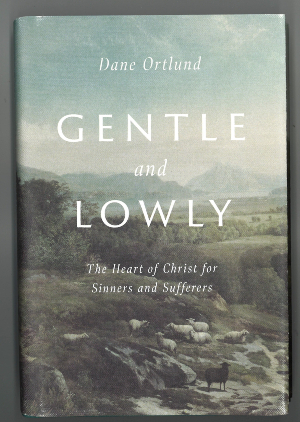 By Ward Shope
By Ward Shope
“Everything in moderation” is the oft-quoted sensible phrase which originates from the Greco-Roman era. Certainly this sage advice has its strong points. If I don’t eat cookies in moderation, I’m likely to wind up resembling the same roundness as the cookies. If I don’t exercise in moderation, my body is likely to protest either with pain or exhaustion. Groups known to be fanatical or extreme are associations we would be wise to carefully scrutinize.
But is balance always best? Some things are bad for us in every proportion. (Sin for instance.) And some things are so good, there should be no beginning or end to them. (Agape love.)
This is what Dane Ortlund argues in his book Gentle and Lowly. Jesus is extreme in the way he feels about those who desperately need him—which is all of us. Drawing from the Scriptures and various Puritan authors, he sheds light on the different ways Jesus responds to our unhappy condition as sinners in need of a Savior. As we read it, we catch a glimpse of how Jesus feels about us.
Ortlund spends little time on the legal side of salvation. It’s true that we are justified by grace through faith. But Ortlund wants us to understand the emotional side of Jesus. Jesus is human after all, and he experiences all of the same emotions we do as human beings—without sin’s taint. If we experience deep passion for others, it is only a moderate reflection of the extreme, pure passion that Jesus has for us. The subtitle, “The Heart of Christ for Sinners and Sufferers” describes well the content of the book. We see familiar biblical passages about Jesus in a different light because we see his heart. And if you’ve given in to the notion that the Puritans were grim, unemotional legalists, this book will change your mind. They are convinced Jesus is moved for us. How can we not also be moved by his heart for us?
Ortlund addresses the concern that if we spend too much time talking about Jesus’ aching heart for us, we will shortchange God’s holiness. Shouldn’t we be seeking to find a balance here? Ortlund says we do an injustice if we limit holiness on the one hand or Jesus’ compassionate heart for us on the other. Instead, holding them both in the extreme enables them to reinforce each other. To have a high view of God’s holiness and to shortchange the emotion of Jesus for us paints an inaccurate picture of Jesus and his Father.
Because there are 23 short chapters, each self-contained, each focusing on an aspect of Jesus’ heart, I’ve been reading them devotionally—often before I go to bed at night. Not always being a very expressive person myself, I’ve found the book challenging me to see the loving expressiveness of Jesus towards me. I’ve never thought that much about the emotional life of Jesus. Seeing him this way has made me take a look at my own heart and whether it reflects his own.
